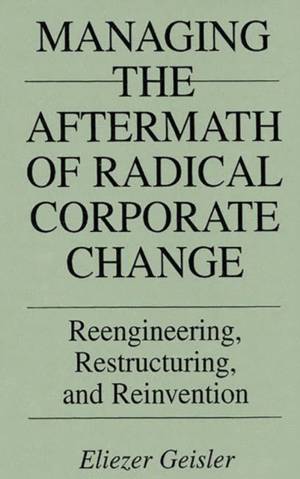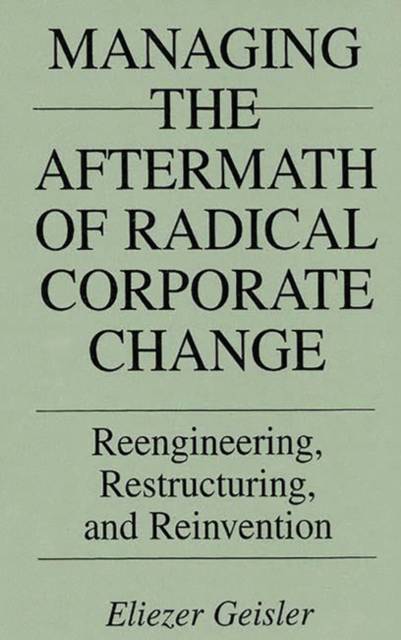
- Retrait gratuit dans votre magasin Club
- 7.000.000 titres dans notre catalogue
- Payer en toute sécurité
- Toujours un magasin près de chez vous
- Retrait gratuit dans votre magasin Club
- 7.000.0000 titres dans notre catalogue
- Payer en toute sécurité
- Toujours un magasin près de chez vous
Managing the Aftermath of Radical Corporate Change
Reengineering, Restructuring, and Reinvention
Eliezer GeislerDescription
The radical restructuring of organizations can have momentous effects and not all of them are good. In fact, many are actually bad and may cause serious harm. How management can remedy these ill effects systematically and restore stability to their traumatized organizations is the theme of Dr. Geisler's compelling new book. How do we clean up the mess from poorly conceived, badly implemented, and ultimately unsuccessful restructurings? How can managers, who have been caught up in these changes and who are as disrupted by them as anyone, regain their own equilibrium and help the healing and reconstructive process take hold? Geisler's answers to these questions are essential reading for corporate executives in all types of organizations (public and private both), and for academics and students.
Dr. Geisler lists the problems associated with radical change and describes the futility of total corporate transformations in general. In addition, he develops a staged process by which managers can counteract the side effects of radical change programs. By showing that the beneficial effects of radical corporate change are usually transient, Dr. Geisler's process is a key ingredient in any effort designed for the long-term survival of the firm and the preservation of its strategic goals and methods. Thus, not only does Geisler provide a sound, well-reasoned criticism of corporate restructuring, but he offers something that few if any other books can offer: a workable means to cope constructively with the effects of its many failures.Spécifications
Parties prenantes
- Auteur(s) :
- Editeur:
Contenu
- Nombre de pages :
- 240
- Langue:
- Anglais
Caractéristiques
- EAN:
- 9781567201505
- Date de parution :
- 23-09-97
- Format:
- Livre relié
- Format numérique:
- Genaaid
- Dimensions :
- 156 mm x 234 mm
- Poids :
- 512 g

Les avis
Nous publions uniquement les avis qui respectent les conditions requises. Consultez nos conditions pour les avis.






